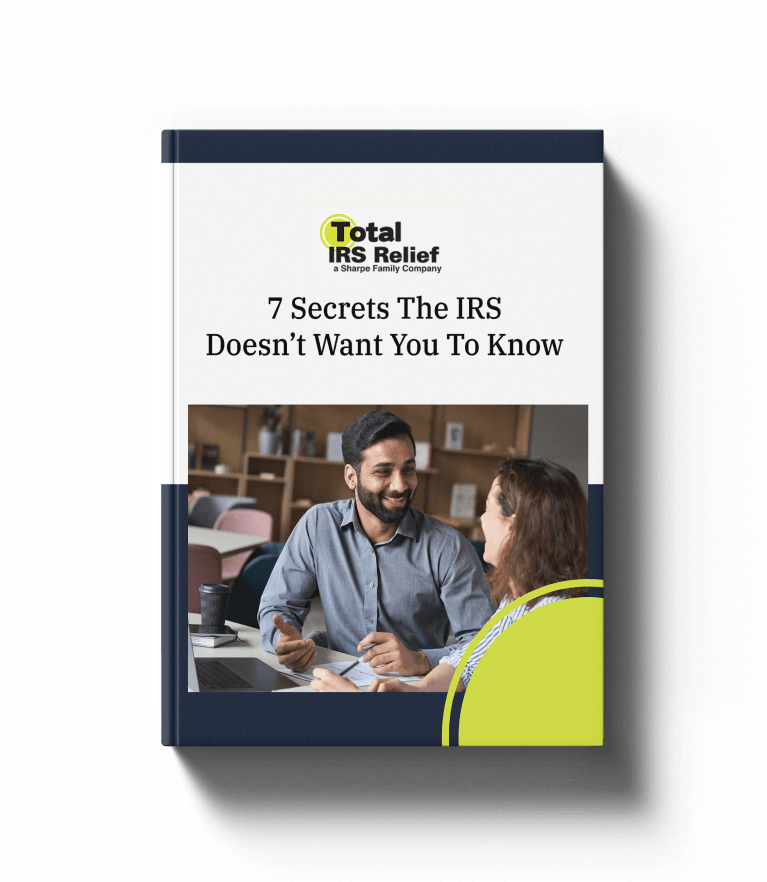
When it comes to unpaid taxes, the IRS has a lot of power, and one of the most serious actions they can take is issuing a levy. A levy gives the IRS the legal right to seize your property or assets to settle a tax debt. At Total IRS Relief, we’ve helped many clients avoid or stop levies, and we want to make sure you know what to expect if you’re facing one.
What Is a Levy?
A levy is more than just a warning—it’s a legal seizure of your property. This can include:
- Wage Garnishment: The IRS can take a portion of your paycheck directly from your employer until your tax debt is paid off.
- Bank Account Seizure: The IRS can freeze and take money from your bank account to cover what you owe.
- Property Seizure: In extreme cases, the IRS can take other assets, such as your car, home, or other valuable property.
Levies are different from liens. A lien is a legal claim against your property as security for a tax debt, while a levy is the actual taking of property to pay off that debt.
How Does a Levy Happen?
The IRS won’t levy your assets without warning. Before they take this step, they will:
- Assess the tax debt: The IRS will send you a bill outlining how much you owe.
- Send multiple notices: If the debt remains unpaid, they’ll send several notices over time, including a Final Notice of Intent to Levy (such as the LT11 letter).
- Give you time to respond: After receiving a final notice, you typically have 30 days to take action before the IRS proceeds with the levy.
It’s important to act before the IRS moves forward with the levy. Ignoring these notices won’t make the debt go away—in fact, it will only lead to more aggressive collection efforts.
What to Do If You’re Facing a Levy
If you receive a Final Notice of Intent to Levy, you need to act quickly. Here are your options:
- Request a Collection Due Process (CDP) Hearing: You have the right to request a hearing to appeal the levy. This can stop the IRS from taking your assets while you work on resolving the tax issue.
- Set Up a Payment Plan: The IRS offers several payment plans that allow you to pay off your debt over time. This can stop the levy process if approved.
- Apply for an Offer in Compromise: If you can’t pay the full amount, you may be able to settle your tax debt for less than what you owe through an Offer in Compromise.
- Prove Financial Hardship: If paying your debt would cause significant financial hardship, you can request to be placed in Currently Not Collectible status. This stops collection efforts, including levies, but doesn’t erase your tax debt.
How Can Total IRS Relief Help?
Dealing with a levy on your own can be overwhelming. At Total IRS Relief, we’re experts at working with the IRS to stop levies and protect our clients’ assets. Here’s how we can assist you:
- Stop Wage Garnishment or Bank Levies: We can help you submit the necessary paperwork to request a hearing or set up a payment plan that halts the levy process.
- Negotiate with the IRS: We work directly with the IRS on your behalf to find the best possible solution for your tax situation.
- Protect Your Assets: Whether it’s your wages, your bank account, or other property, we’ll work to ensure the IRS doesn’t seize your hard-earned assets.
How to Avoid a Levy in the Future
The best way to avoid a levy is to stay on top of your tax obligations. However, if you’re already behind, there are steps you can take to avoid further IRS action:
- Respond to IRS Notices Promptly: Ignoring the IRS only makes things worse. Contact the IRS as soon as you receive a notice to discuss your options.
- Set Up a Payment Plan: If you can’t pay your taxes in full, a payment plan can help keep you in good standing with the IRS while you catch up.
- Seek Professional Help: Tax issues can be complicated, and it’s easy to make mistakes that can cost you. Working with a professional can help you stay on track and avoid levies in the future.
Final Thoughts
A levy can be a devastating financial blow, but it doesn’t have to be the end of the road. If you’re facing a levy or worried about one, don’t wait until it’s too late. At Total IRS Relief, we’re here to help you protect your assets and find a solution that works for you.
Contact us today, and let’s start working on resolving your tax issues before the IRS takes action.
Enter your contact information to schedule your FREE one-on-one consultation. Our tax experts will get back to you as soon as possible.

